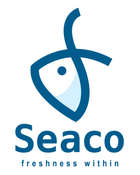Seafood and Blood Pressure in Singapore: What You Need to Know
Seafood and Blood Pressure in Singapore: What You Need to Know
If you're living in Singapore, chances are you enjoy the local cuisine which includes a variety of seafood dishes. However, did you know that some seafood can increase your risk of developing high blood pressure? High blood pressure is a common condition affecting one in four adult Singaporeans, and it can lead to serious health complications such as stroke and heart attack if left untreated.
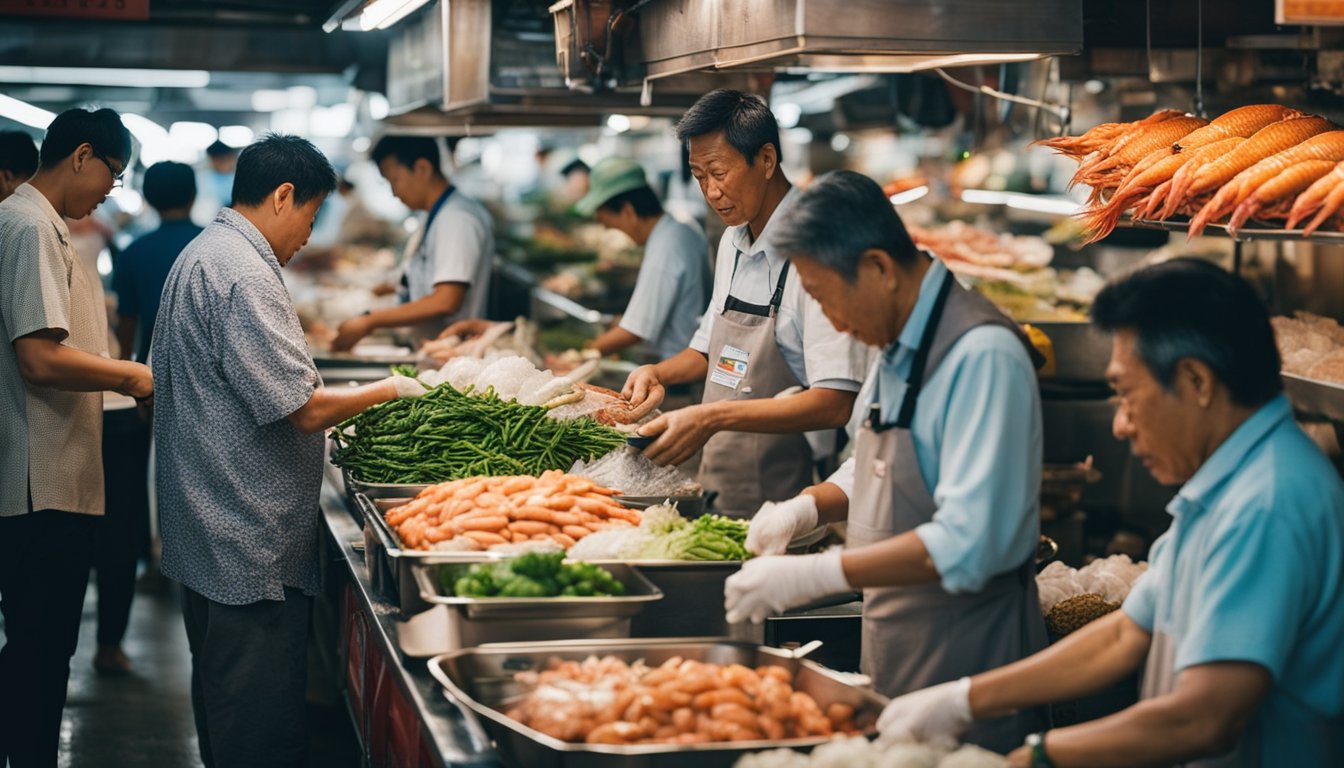
Understanding the impact of blood pressure on your health is crucial, and dietary factors play a significant role in managing it. In this article, we'll explore the relationship between seafood and blood pressure in Singapore. We'll also discuss the dietary and lifestyle factors that affect blood pressure and how you can manage it. Finally, we'll provide information on healthcare in Singapore for blood pressure concerns and answer some frequently asked questions.
Key Takeaways
- Some seafood can increase your risk of developing high blood pressure.
- Dietary and lifestyle factors play a significant role in managing blood pressure.
- Healthcare in Singapore offers various options for managing blood pressure concerns.
Understanding Blood Pressure and Its Impact
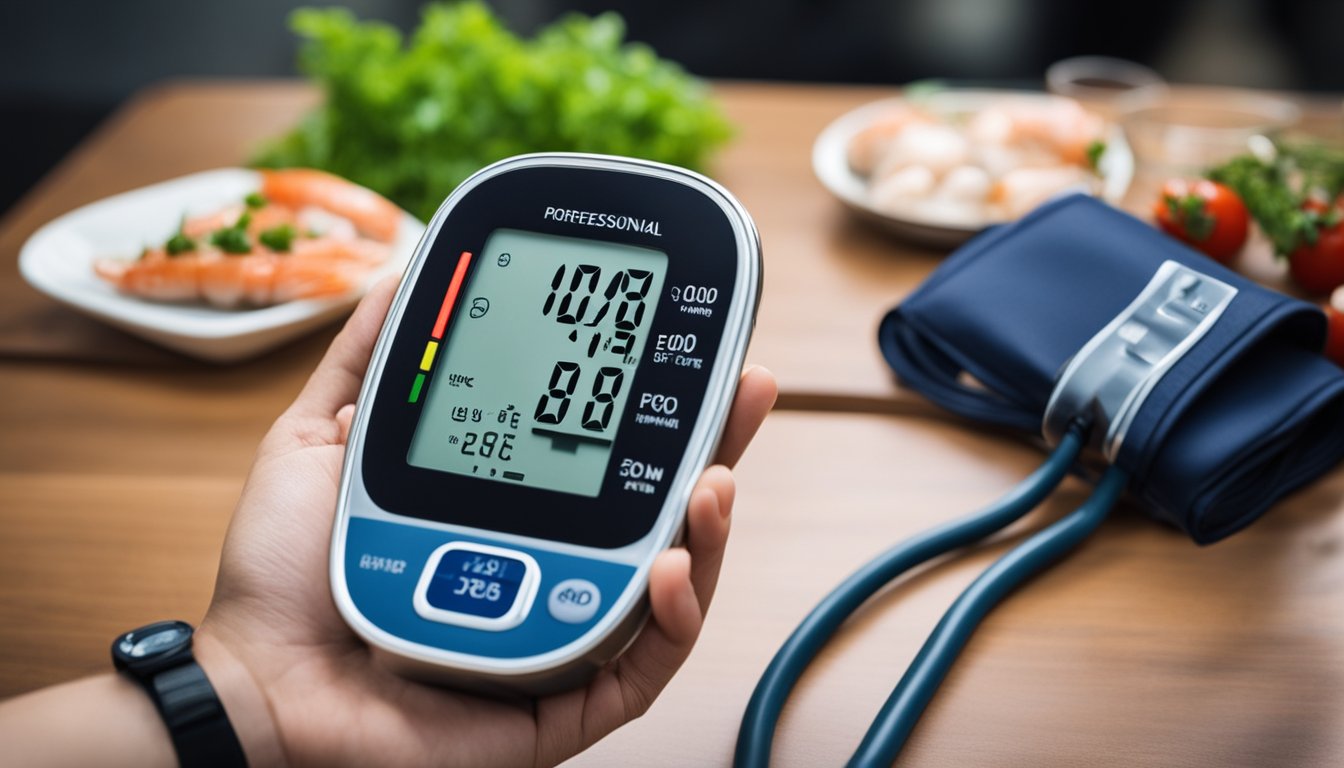
What Is Blood Pressure?
Blood pressure is the force of blood pushing against the walls of your arteries. It is measured in millimetres of mercury (mmHg) and is expressed as two numbers, one over the other. The first number is the systolic blood pressure, which is the pressure in the arteries when the heart beats. The second number is the diastolic blood pressure, which is the pressure in the arteries when the heart is at rest between beats.
The Risks of High Blood Pressure
High blood pressure, or hypertension, is a major risk factor for many health problems, including heart disease, stroke, and kidney disease. It is often called the "silent killer" because it often has no symptoms until it causes serious damage to your health.
When your blood pressure is too high, it puts extra strain on your heart and arteries, which can cause damage over time. This can lead to a variety of health problems, including coronary heart disease, heart failure, and kidney disease.
Blood Pressure in Singapore
In Singapore, more than one in three people have high blood pressure, according to the latest data. This is partly due to the high salt intake in the local diet, as well as other risk factors such as obesity, lack of exercise, and smoking.
It is important to get your blood pressure checked regularly, especially if you have any risk factors for hypertension. A normal blood pressure reading is around 120/80 mmHg, although this can vary depending on your age and other factors. You can use a blood pressure chart to track your readings over time and see if you need to make any changes to your lifestyle to reduce your risk of hypertension.
Dietary Factors Affecting Blood Pressure
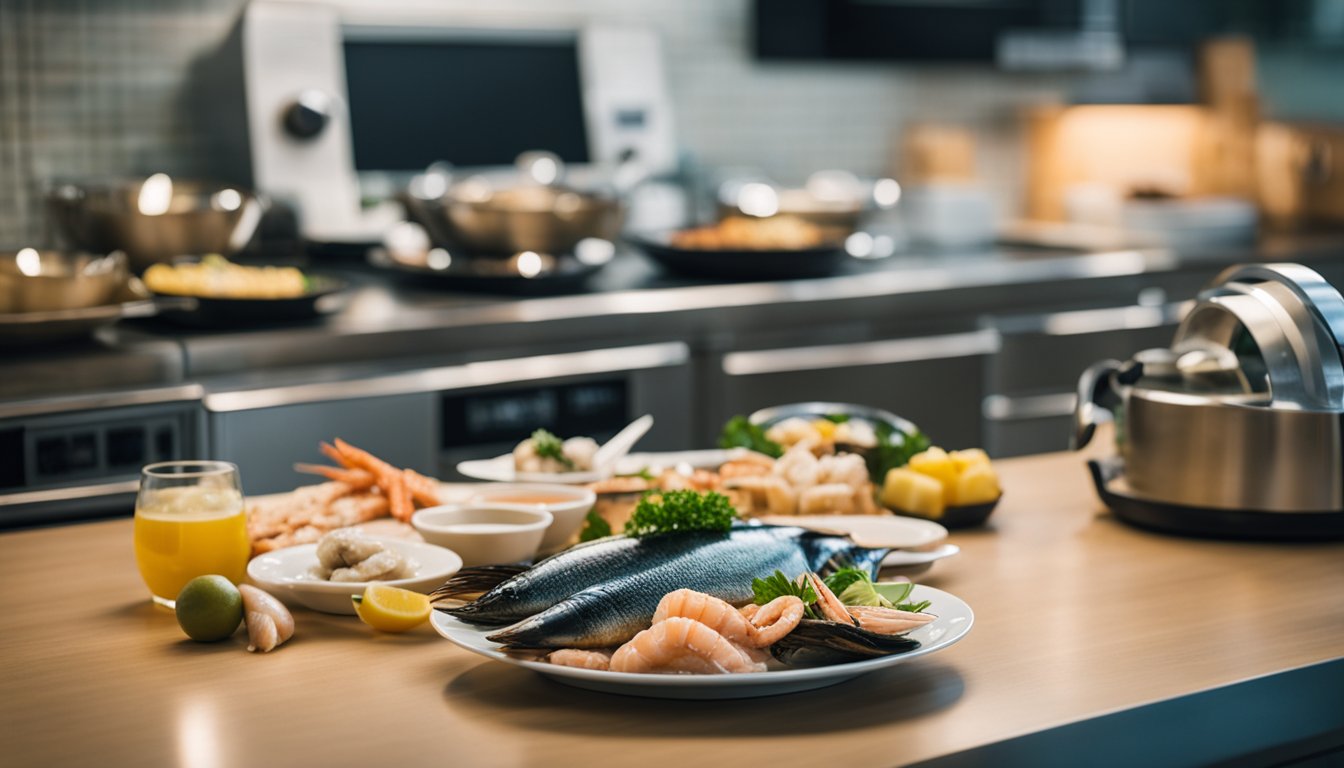
Maintaining healthy blood pressure levels is important for overall health. Your diet plays a crucial role in managing your blood pressure. Here are some dietary factors that can affect your blood pressure levels.
The Role of Diet in Managing Blood Pressure
A healthy and balanced diet can help manage your blood pressure. Eating a variety of fruits, vegetables, whole grains, and lean proteins can provide your body with the necessary nutrients for optimal health. A diet rich in fibre, protein, and healthy fats can also help regulate blood pressure levels.
Seafood and Its Nutritional Benefits
Seafood is a great source of lean protein and omega-3 fatty acids, which can help lower blood pressure levels. Consuming fish and seafood at least twice a week can provide you with essential nutrients that benefit your heart and overall health. Some of the best seafood options for managing blood pressure include salmon, tuna, mackerel, and sardines.
Sodium and Potassium Balance
Sodium and potassium balance is crucial for managing blood pressure. Consuming too much sodium can raise blood pressure levels, while consuming potassium can help lower blood pressure levels. It is important to limit your sodium intake and consume more potassium-rich foods such as bananas, sweet potatoes, and spinach.
In conclusion, maintaining a healthy and balanced diet can help manage your blood pressure levels. Consuming seafood, limiting sodium intake, and consuming more potassium-rich foods are important factors in managing blood pressure. By incorporating these dietary changes into your lifestyle, you can take control of your blood pressure and improve your overall health.
Lifestyle and Blood Pressure Management

Hypertension, commonly known as high blood pressure, can lead to serious health problems such as heart attack, stroke, and kidney failure. However, making lifestyle changes can help manage your blood pressure and reduce your risk of developing these conditions.
Exercise and Its Benefits for Hypertension
Regular exercise is one of the most effective ways to manage hypertension. Exercise helps to strengthen your heart and blood vessels, which can lower your blood pressure. Swimming, cycling, and brisk walking are all great forms of exercise that can help you achieve your target blood pressure.
Stress and Blood Pressure
Stress can cause your blood pressure to rise, so it's important to manage your stress levels. Practicing relaxation techniques such as deep breathing, meditation, and yoga can help reduce stress and lower your blood pressure.
The Importance of Regular Monitoring
Monitoring your blood pressure regularly is important to keep track of your progress and make sure your lifestyle changes are working. You can use a blood pressure machine at home to monitor your blood pressure readings. Regular monitoring can help you identify any changes in your blood pressure and make adjustments to your lifestyle changes accordingly.
In addition to lifestyle changes, other factors such as sleep apnea, hormones, and insomnia can also affect your blood pressure. Therefore, it's important to talk to your doctor about any concerns you have about your blood pressure and work with them to develop a plan to manage your hypertension.
Healthcare in Singapore for Blood Pressure Concerns

If you are concerned about your blood pressure, there are many healthcare options available in Singapore. With a growing number of adults in Singapore experiencing high blood pressure, it is important to know when to consult a doctor, what medication and treatment options are available, and what support and resources are available to you.
When to Consult a Doctor
If you are experiencing symptoms such as headaches, dizziness, or chest pain, it is important to consult a doctor immediately. High blood pressure can lead to serious health complications such as heart attack, stroke, kidney disease, and brain damage. Your family doctor can help you with the diagnosis and treatment of high blood pressure.
Medication and Treatment Options
If you are diagnosed with high blood pressure, your doctor may recommend medication to help lower your blood pressure. There are many different types of medication available, and your doctor will work with you to find the best option for your needs. In addition to medication, lifestyle changes such as losing weight, quitting smoking, and reducing your sugar and salt intake can also help to lower your blood pressure.
Support and Resources Available
The Health Promotion Board in Singapore offers resources and support for those with high blood pressure. They offer educational materials on healthy eating, exercise, and stress management, as well as information on local restaurants that offer healthy food options. Additionally, there are many natural remedies that can help to lower blood pressure, such as bananas, magnesium, and ginger.
In conclusion, if you are concerned about your blood pressure, it is important to consult a doctor and explore all of the options available to you. With the right treatment plan and support, you can manage your blood pressure and reduce your risk of health complications.
Frequently Asked Questions
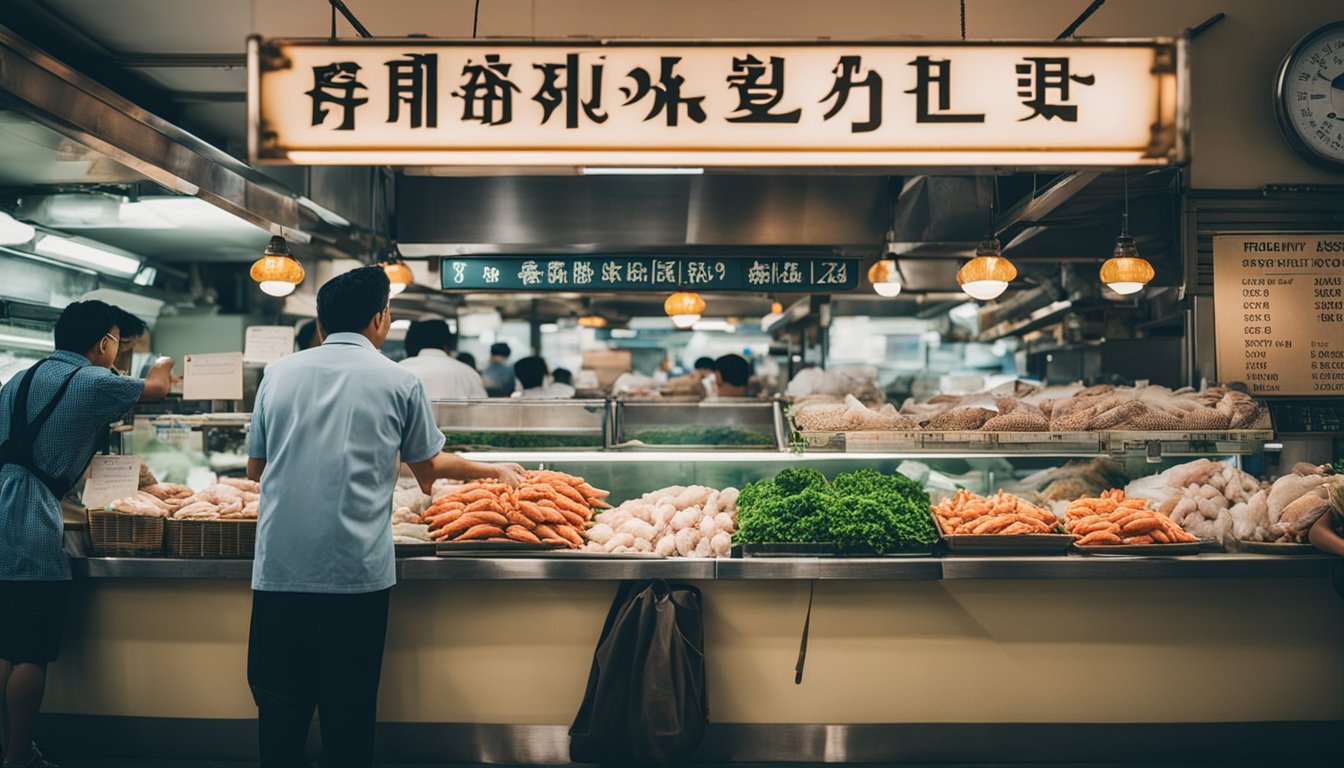
What types of seafood are recommended for managing high blood pressure?
Seafood is an excellent source of protein and omega-3 fatty acids, which are essential nutrients for your body. Some of the seafood options that are recommended for managing high blood pressure include salmon, sardines, tuna, and mackerel. These fish are rich in omega-3 fatty acids, which can help to lower blood pressure levels.
Are there any seafood dishes to avoid for those with hypertension in Singapore?
While seafood is generally considered a healthy food choice, there are some dishes that you should avoid if you have hypertension. For example, dishes that are high in sodium, such as salted fish or salted squid, can increase blood pressure levels. Additionally, deep-fried seafood dishes can be high in calories, which can contribute to weight gain and high blood pressure.
How does the consumption of crab affect blood pressure levels?
Crab is a delicious seafood option that is popular in Singapore. While it is generally considered a healthy food choice, it is important to note that crab can be high in cholesterol. If you have high blood pressure, it is recommended that you limit your intake of cholesterol to help manage your condition.
Which are the healthier rice options for individuals with high blood pressure?
If you have high blood pressure, it is important to choose healthier rice options. Brown rice is a great option as it is high in fiber and can help to lower blood pressure levels. Other healthy rice options include red rice, black rice, and wild rice.
What dietary changes can help lower high blood pressure for Singaporeans?
In addition to incorporating seafood and healthier rice options into your diet, there are other dietary changes that can help to lower high blood pressure levels. Some of these changes include reducing your sodium intake, eating more fruits and vegetables, and limiting your intake of saturated and trans fats.
Does a high intake of rice influence blood pressure readings?
While rice is a staple food in Singapore, a high intake of rice can contribute to high blood pressure levels. It is important to choose healthier rice options and to limit your intake of rice to help manage your condition.


